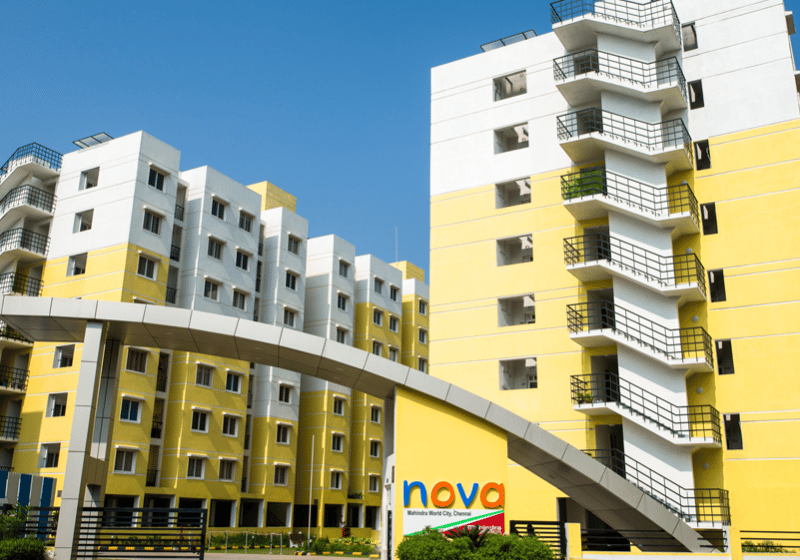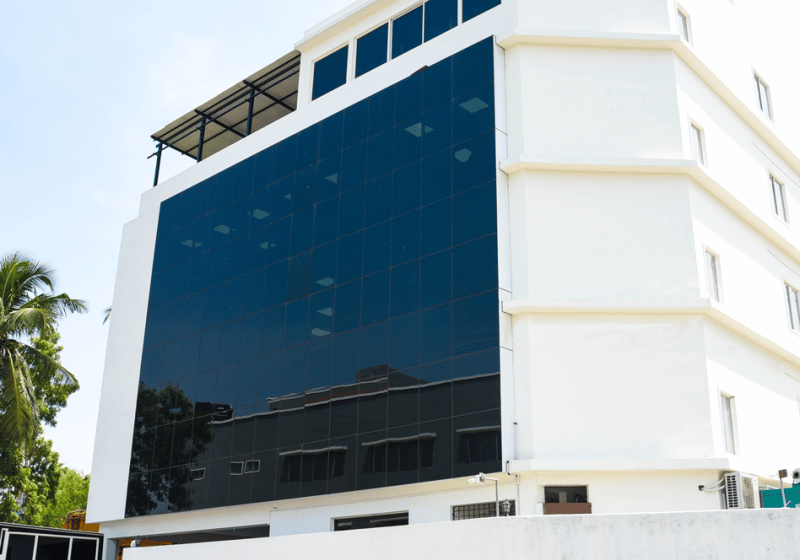thyssenkrupp Elevator (India)’s response to the pandemic amid modification in modernization
The elevator world has witnessed major changes in the way it operates, whether it is physical distancing on the elevator or huge demand for advanced sanitizing solutions and touchless elevator calling solutions due to the pandemic. While the work being done is different from typical modernization, to cater to the diverse requirements of our customers and keep them safe, thyssenkrupp Elevator (India) developed various smart and user-friendly touchless elevator-calling solutions. These are based on proximity sensors, QR codes and Bluetooth. Furthermore, as we strive to make every elevator a healthy and disease-free space, we have launched an advanced air-purification solution, LED thermal camera and aerosol disinfectant solution.
Challenges and Opportunities
One of the challenges of elevator and escalator overhauls is to find ways of minimizing the impact the work has on the business hours of office-building tenants or on the mobility needs of daily users. Raising the money needed for refurbishing elevators and escalators can also be difficult for the owners or management associations of small and medium-sized buildings.
Another potential problem comes about when the facility manager looks for cheaper options for replacement or repair of an old elevator. This can jeopardize user safety and comfort of its users. As for opportunities, modernization enhances elevators’ aesthetics and technology, in stages or at once, per the customer’s pace and budget. Moreover, it translates into monetary savings, increased property value, improved energy efficiency, smoother ride quality and enhanced safety.
Influence on Demand Patterns
There have been signs of revival in both the real estate and elevator industries. For instance, residential launches across India’s top eight property markets have witnessed a major upturn, with a 68% jump during the quarter ending September 2020 over the previous quarter that was marked by lockdowns. Although the industry will take another year or so to reach the pre-COVID-19 level, we are also upbeat about the growth of the affordable housing segment, as this has the potential to be a gamechanger. The Indian government’s decision to give “Infrastructure” status to affordable housing has improved resource allocation and facilitated higher investments in this sector. Our manufacturing facility at Chakan, Pune, is equipped to tap this fast-growing segment.
India has also been witnessing a rapid increase in investments, both by government and private entities, on large-scale metro projects, especially in Tier-1 and -2 cities. The consistent growth in the construction of new metro stations and airports has increased the demand for elevators and escalators. Delhi, Bengaluru, Hyderabad, Chennai, Pune and surrounding areas have started metro rail transportation with plans to increase connectivity. Similarly, to cater to increasing air traffic, the Government of India has envisaged increasing the number of operational airports to 190-200 by fiscal year 2040 (from the current 103 airports). Real estate investments in the vicinity of these metro rail stations and airports will also create demand for elevators and escalators, contributing to elevator and escalator market growth in India.
Having said that, our business strategy is to continue growing by offering clever, customized and energy-efficient mobility solutions with a significant investment in R&D. We are also determined to strengthen our maintenance and service business, while remaining committed to continuous investment in our employees through comprehensive training programs on new manufacturing, installation and maintenance processes to increase elevators’ in-service reliability and safety.
Looking Ahead
The government is expected to lend its support to the industry. Within a quarter, there could be faster recovery once the pandemic subsides. Going forward, the elevator industry is expected to develop indigenously and bring up new technologies like Destination Selection Control and other innovations to India to manufacture with less reliance on manpower and increased scaffold-less construction, augmented Internet of Things (IoT)-based data collection and learning to determine parameters based on actual elevator usage to help analyze values on which lift traffic analysis was modeled.
Adopting newer technologies is happening. For example, thyssenkrupp Elevator’s MAX is a real-time, cloud-based predictive-maintenance solution. Our smart, machine-learning IoT solution dramatically increases elevator availability by reducing out-of-service situations by up to 50% through real-time diagnostics. MAX predicts maintenance issues before they occur and flags components and systems that need to be replaced before the end of their lifecycles. It collects and sends real-time data from connected elevators to the cloud. Intricate algorithms allow assessment of the health of connected elevators and their components. The result is a fundamental shift from reactive to proactive maintenance and the many benefits that go along with it.
Manish Mehan has been CEO and managing director of thyssenkrupp Elevator (India) since 2019. He is responsible for driving all strategic, operational and financial goals for Operating Unit India. Prior to this position, he was the company’s chief financial officer for 12 years. In this capacity, he led the financial and related functions for the Indian and Bangladeshi operating units.
Get more of Elevator World. Sign up for our free e-newsletter.







